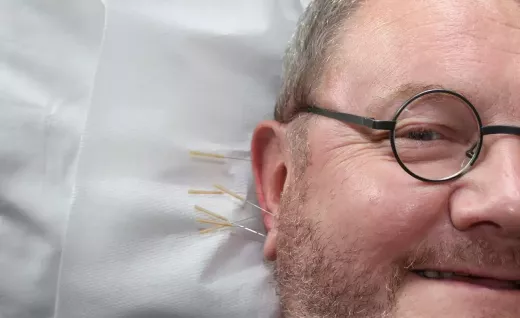What is COVID-19?
COVID-19 is a respiratory illness caused by a novel coronavirus known as SARS-CoV-2. The virus was first identified in Wuhan, China, in December 2019, and has since spread to become a global pandemic. The virus primarily spreads through respiratory droplets when an infected person talks, coughs, or sneezes. It can also spread when a person touches a surface contaminated with the virus and then touches their mouth, nose, or eyes.
The symptoms of COVID-19 can range from mild to severe and can appear anywhere from 2-14 days after exposure to the virus. Common symptoms include fever, cough, fatigue, body aches, loss of taste or smell, sore throat, and shortness of breath. In severe cases, the virus can cause pneumonia, acute respiratory distress syndrome, sepsis, and even death.
As of July 2021, there have been over 190 million confirmed cases of COVID-19 worldwide, with over 4 million deaths. The virus has had a significant impact on the global economy, healthcare systems, and daily life.
Symptoms of COVID-19
The symptoms of COVID-19 can vary from person to person and can range from mild to severe. Some people may have no symptoms at all, while others may experience severe symptoms that require hospitalization. The most common symptoms of COVID-19 include:
- Fever
- Cough
- Fatigue
- Body aches
- Loss of taste or smell
- Sore throat
- Shortness of breath
Less common symptoms include headache, chills, vomiting, and diarrhea. In severe cases, the virus can cause pneumonia, acute respiratory distress syndrome, sepsis, and even death.
It's important to note that some people may have COVID-19 and not show any symptoms. These people can still spread the virus to others, making it essential to take precautions to prevent the spread of the virus.
How is COVID-19 transmitted?
COVID-19 primarily spreads through respiratory droplets when an infected person talks, coughs, or sneezes. The virus can also spread when a person touches a surface contaminated with the virus and then touches their mouth, nose, or eyes.
The virus can spread even when a person is not showing symptoms, making it essential to take precautions to prevent the spread of the virus. This includes wearing a mask, practicing social distancing, washing your hands frequently, and avoiding large gatherings.
Prevention of COVID-19
Preventing the spread of COVID-19 is essential to protect yourself and others from getting infected. Here are some steps you can take to prevent the spread of the virus:
- Wear a mask: Wearing a mask can help prevent the spread of respiratory droplets and reduce the risk of infection.
- Practice social distancing: Stay at least six feet away from other people to reduce the risk of infection.
- Wash your hands frequently: Wash your hands with soap and water for at least 20 seconds, or use hand sanitizer if soap and water are not available.
- Avoid large gatherings: Avoid large gatherings and crowded spaces where the virus can spread more easily.
- Stay home if you're sick: If you have symptoms of COVID-19, stay home to prevent the spread of the virus to others.
The role of masks in preventing COVID-19
Masks play a critical role in preventing the spread of COVID-19 by reducing the amount of respiratory droplets that can spread the virus. The Centers for Disease Control and Prevention (CDC) recommends wearing a mask in public settings, especially when social distancing is difficult to maintain.
There are several types of masks, including cloth masks, surgical masks, and N95 respirators. Cloth masks are the most common type of mask and can be made from a variety of materials. Surgical masks are disposable masks that are designed to protect the wearer from large respiratory droplets. N95 respirators are specialized masks that filter out at least 95% of airborne particles, including the virus that causes COVID-19.
It's important to wear a mask properly to ensure maximum effectiveness. This includes covering your nose and mouth, avoiding touching your mask while wearing it, and washing your hands before and after wearing a mask.
COVID-19 testing
COVID-19 testing is essential to identify and isolate infected individuals to prevent the spread of the virus. There are two main types of COVID-19 tests: viral tests and antibody tests.
Viral tests are used to diagnose active COVID-19 infections. These tests look for the presence of the virus in respiratory samples, such as nasal swabs or saliva. Results are typically available within a few days.
Antibody tests are used to determine if a person has been infected with COVID-19 in the past. These tests look for the presence of antibodies in the blood, which can indicate a previous infection. Antibody tests are not used to diagnose current infections and are typically done several weeks after symptoms have resolved.
Tests Covid-19
Treatment for COVID-19
There is currently no specific treatment for COVID-19, but several medications are being used to manage symptoms and reduce the severity of the illness. These medications include antiviral drugs, corticosteroids, and monoclonal antibodies.
In severe cases, hospitalization may be required to provide supportive care, such as oxygen therapy and mechanical ventilation. The goal of treatment is to manage symptoms and prevent complications from the virus.
Vaccines for COVID-19
Vaccines are a critical tool in the fight against COVID-19. Several vaccines have been developed and authorized for emergency use around the world, including the Pfizer-BioNTech vaccine, Moderna vaccine, and Johnson & Johnson vaccine.
These vaccines work by teaching the immune system to recognize and fight the virus that causes COVID-19. The vaccines have been shown to be highly effective in preventing severe illness, hospitalization, and death from the virus. It's important to get vaccinated to protect yourself and others from getting infected.
COVID-19 and mental health
The COVID-19 pandemic has had a significant impact on mental health, leading to increased stress, anxiety, and depression. Social isolation, job loss, and financial insecurity have contributed to the mental health toll of the pandemic.
It's important to prioritize mental health during the pandemic by staying connected with loved ones, practicing self-care, and seeking support if needed. This can include talking to a mental health professional, joining a support group, or practicing stress-reducing activities such as meditation or yoga.






.png?size=50)


